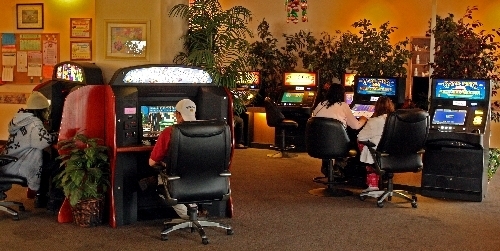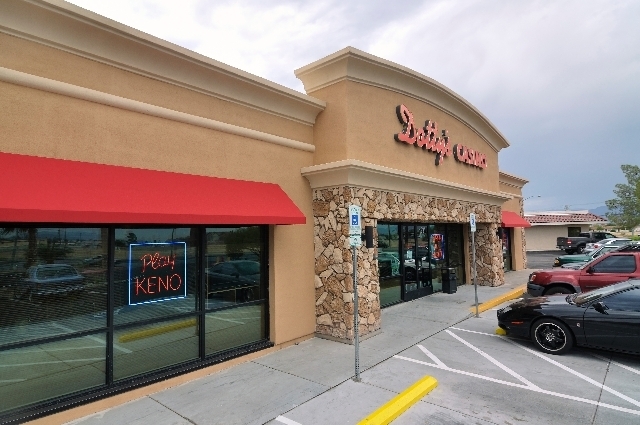New debate over slots, but Dottys still the elephant in the room
A legislative committee tasked with looking at technology’s effect on the casino industry launched a debate Thursday on whether Nevada’s more than 2,000 restricted gaming locations rely too heavily on slot machines as a revenue source.
The issue — whether funds gleaned from gaming in bars, taverns, restaurants and other businesses with 15 or fewer slot machines incidental to the location’s overall revenue stream — has been argued over the past few years by lawmakers, gaming regulators, the casino industry, restricted licensees and others.
Various changes have been made to state and local ordinances, regulations and statutes.
On Thursday, the Committee to Conduct an Interim Study Concerning the Impact of Technology Upon Gaming, which is comprised of legislators, regulators and gaming industry representatives, was told to leave well enough alone.
“It’s been governed and it’s been regulated,” said Las Vegas attorney John O’Reilly, representing several tavern operators and their trade association. “It’s as perfect as it’s going to be. As it is now, we have a clear direction and there should not be any changes made.”
Las Vegas attorney and lobbyist Sean Higgins, representing Golden Gaming, agreed with O’Reilly, but added one caveat.
Higgins suggested the Legislature increase funding to the Gaming Control Board so agents can better police the restricted gaming locations and weed out businesses that are nothing more than slot machine parlors.
“The regulations, as they stand right now, are fine and our members are meeting the requirement,” Higgins said. “But let’s make sure our regulators have the ability to police those that are not in compliance.”
Several tavern operators and casino industry representatives, backed by the Nevada Resort Association, have long questioned the business model of the Dotty’s casinos, which are operated by Nevada Restaurant Services.
Station Casinos Vice President Mike Sloan, a member of the committee, questioned O’Reilly on the number of people employed by Dotty’s.
Three casino company executives didn’t mention Dotty’s by name, but testified that the business model, which in the past included locations with 15 slot machines offering minimal food and beverage service, was unfair to nonrestricted licensees.
“The vast majority of the restricted licensees play by the rules of the game,” Cannery Casinos Executive Vice President Guy Hillyer told the committee. “But there are others that don’t. Give the regulators the tools they need to make sure these locations are brought into compliance.”
Restricted gaming locations pay less in gaming taxes than nonrestricted locations, which include the state’s small and large casinos.
Nonrestricted locations pay gaming taxes on a graduated monthly scale; 3.5 percent on the first $50,000, 4.5 percent on the next $84,000 and 6.75 percent tax on all monthly revenue exceeding $134,000.
Restricted locations pay three different fees: a quarterly restricted slot machine fee of $81 per game at locations of up to five machines, and $141 per machine at locations with six to 15 games. The locations pay a restricted slot machine tax of $250 per game, while a few restricted locations qualify to pay the state’s live entertainment tax.
In fiscal 2013, the percentage fee paid by nonrestricted locations accounted for 76.1 percent of the $892.1 million in taxes generated by the state’s gaming industry. The quarterly restricted location slot machine tax totaled $8.4 million, or less than 1 percent of the gaming industry total.
State Sen. Tick Segerblom, D-Las Vegas, asked the control board to calculate what the restricted gaming locations would pay if they were charged the same tax rate as nonrestricted licensees. The report is expected to be completed for the committee’s April meeting.
O’Reilly said the number of restricted gaming locations has changed dramatically since 1996, when there were 1,925 locations operating 16,470 slot machines.
In 2007, Nevada had 2,213 restricted locations with 21,696 slot machines. Last year, there were 2,011 restricted locations with 18,992 slot machines.
O’Reilly said the recession hurt the restricted gaming market, but many small retail centers across the Las Vegas Valley would not be in business without having taverns or restaurants anchoring the sites.
Contact reporter Howard Stutz at hstutz@reviewjournal.com or 702-477-3871. Follow @howardstutz on Twitter.


















